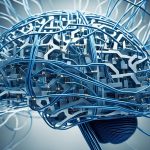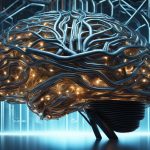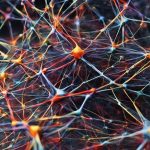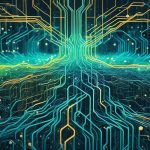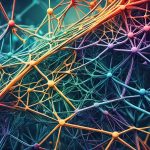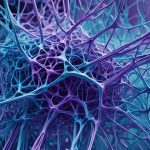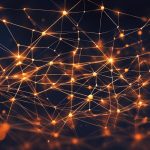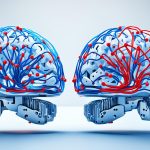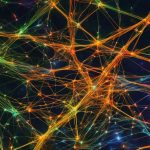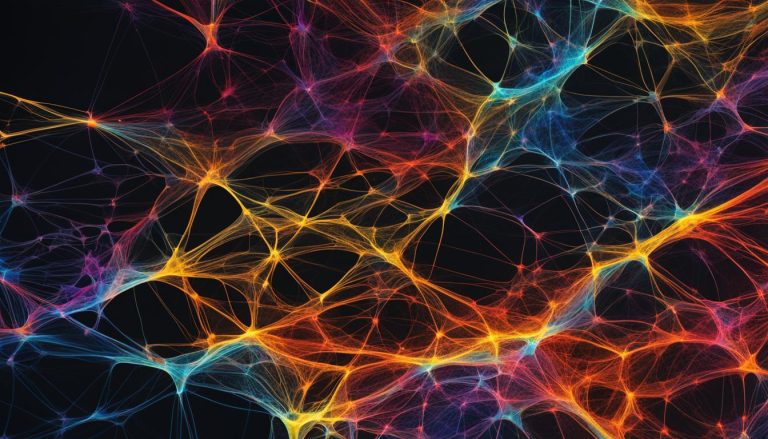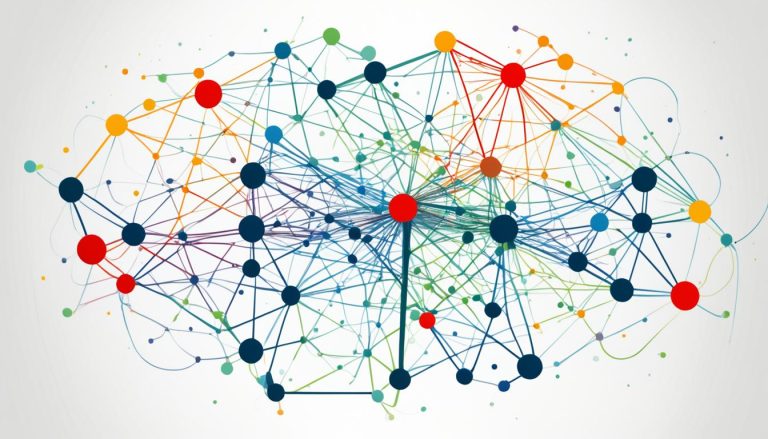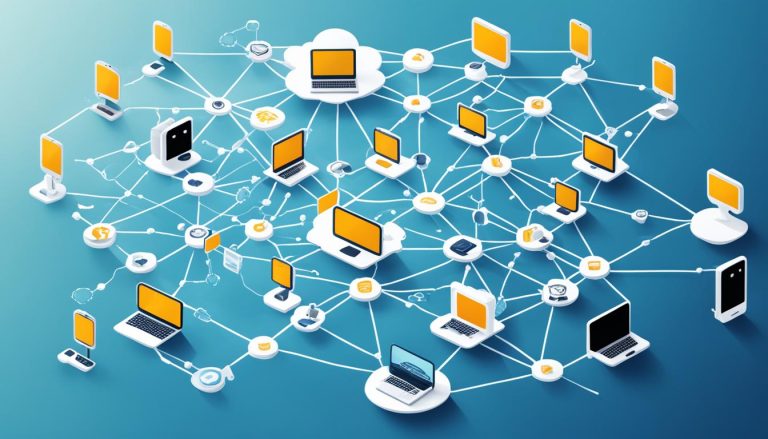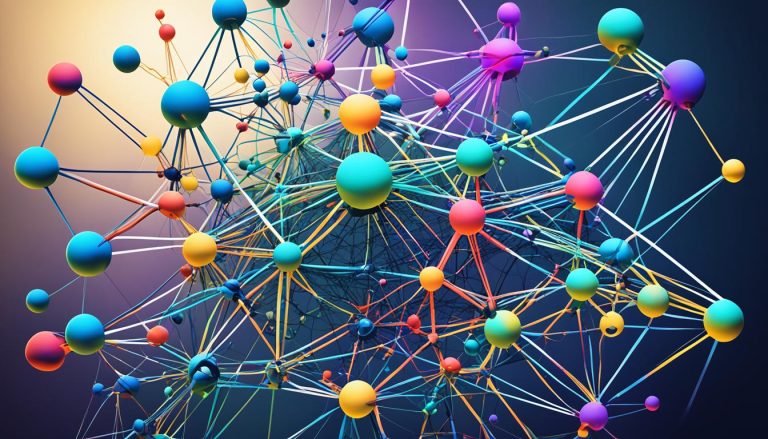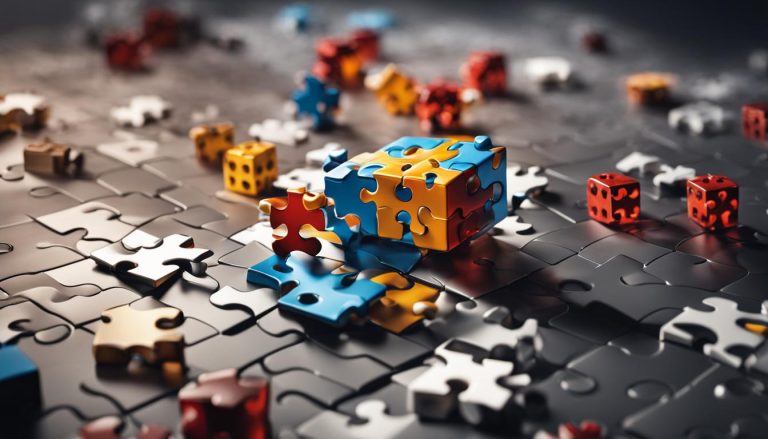The field of artificial intelligence (AI) has made tremendous advancements over the years, but there is still a gap to be bridged between AI and human-like cognition. Enter Differentiable Neural Computers (DNC), a model that holds the potential to close this gap and bring us closer to AI systems with cognitive abilities.
Inspired by the learning and memory mechanism of the human brain, the DNC incorporates working memory and long-term memory. This unique combination allows for the transformation of acquired experience between working memory and long-term memory, enhancing reasoning ability and problem-solving capabilities.
Compared to other existing deep neural network (DNN) and DNC models, the DNC has demonstrated superior performance and faster convergence speed. Its ability to autonomously store and retrieve information between memory systems opens up possibilities for more advanced problem-solving and cognitive abilities in AI systems.
As we delve deeper into the world of Differentiable Neural Computers, let’s explore how they work, their applications across various domains, advancements in AI, challenges and limitations, ethical considerations, and the future prospects of this revolutionary technology.
How Differentiable Neural Computers Work
Differentiable Neural Computers (DNCs) leverage a powerful neural network known as a controller to perform operations on memory. This unique combination of computational power and memory storage enables DNCs to exhibit advanced cognitive abilities. Let’s dive into the inner workings of how these fascinating machines operate.
The core component of a DNC is the controller. Acting as the brain of the system, the controller has the capability to write information to memory. It can choose to store data in new, unused locations or in locations that already contain relevant information from previous experiences. By strategically selecting where to store information, DNCs can optimize their working memory, allowing for efficient retrieval and reasoning processes.
When it comes to retrieving information, DNCs have the ability to read from multiple locations in memory. They can search based on the content of the information or follow associative temporal links, allowing for dynamic recall of relevant knowledge. This capacity for flexible information retrieval enables DNCs to support reasoning abilities and excel at problem-solving tasks.
Working Memory and Long-Term Memory
A key feature of DNCs is the integration of working memory and long-term memory. Working memory functions as a temporary storage system, holding information that is actively being processed by the controller. It allows the DNC to manipulate and reason with the data at hand. On the other hand, long-term memory acts as a more permanent storage bank, capable of retaining vast amounts of information over extended periods of time.
Through the synergy of working memory and long-term memory, DNCs can transform acquired experience, facilitating knowledge transfer and enhancing reasoning abilities. The seamless integration of these two memory systems is a crucial factor in the impressive performance of DNCs.
In the words of Demis Hassabis, co-founder of DeepMind, “We need something more than just a deep learning system. We need a system that can have a working memory and reasoning abilities, that can bridge that gap between perception and reasoning.”
With their unique architecture and memory capabilities, Differentiable Neural Computers have revolutionized the field of artificial intelligence. Their ability to store and retrieve information, combined with their reasoning prowess, makes them highly versatile and valuable in various domains.
Analogous to Human Memory Systems
DNCs are designed to mimic certain aspects of human memory systems. Similar to human working memory, the working memory in DNCs allows for temporary storage and manipulation of information, enabling more efficient cognitive processes.
By emulating long-term memory, DNCs can retain vast amounts of information, serving as a rich knowledge bank. This capacity for long-term storage enables DNCs to accumulate experience over time and adapt their reasoning abilities accordingly.
The Power of Memory Transformation
One of the key strengths of DNCs lies in their ability to transform information between working memory and long-term memory. This transformation process facilitates knowledge integration and enables the DNC to leverage past experiences to tackle new challenges. By retaining valuable information and updating long-term memory based on new insights gained from working memory, DNCs continually refine their reasoning abilities.
The interplay between working memory and long-term memory, coupled with memory transformation, grants DNCs a distinctive advantage in problem-solving and decision-making scenarios. These memory capabilities elevate the intelligence and learning capacity of DNCs, propelling them forward in the world of AI.
| Working Memory | Long-Term Memory | Memory Transformation | Reasoning Ability |
|---|---|---|---|
| Temporary storage and manipulation of information | Retains vast amounts of knowledge | Facilitates integration and knowledge transfer | Enhances problem-solving capabilities |
| Provides cognitive efficiency | Serves as a rich knowledge bank | Updates long-term memory based on working memory insights | Supports advanced decision-making processes |
Applications of Differentiable Neural Computers
Differentiable Neural Computers (DNCs) have proven to be highly versatile, finding applications in various domains where complex intelligent dialogue, reasoning systems, and question answering tasks are required. These advanced models have exhibited exceptional performance, outperforming other Deep Neural Network (DNN) and DNC models in numerous scenarios.
One of the key areas where DNCs excel is in complex intelligent dialogue and reasoning systems. Their ability to store and retrieve information from memory allows DNCs to engage in sophisticated conversations, understanding and responding to complex queries.
Moreover, DNCs have demonstrated remarkable success in question answering tasks. Their memory-augmented architecture enables them to effectively retrieve relevant information and generate accurate responses. This capability makes DNCs an ideal choice for tackling question answering challenges.
Another notable application of DNCs is in the field of reinforcement learning. These models can be trained using reinforcement learning techniques to learn and perform specific tasks, such as solving block puzzle games. DNCs’ memory-enhanced architecture enables them to acquire and utilize knowledge efficiently, leading to improved performance in reinforcement learning scenarios.
Furthermore, DNCs exhibit exceptional capabilities in handling complex data structures. They can store and manipulate intricate data representations, making them invaluable for tasks that involve structured data. DNCs’ ability to reason with complex data structures allows for sophisticated data processing and analysis, facilitating advanced decision-making processes.
Overall, the applications of Differentiable Neural Computers extend to domains that require complex intelligent dialogue, reasoning systems, question answering tasks, reinforcement learning, and data structure manipulation. Through their unique memory-augmented architecture, DNCs provide advanced capabilities that enhance AI systems’ problem-solving and cognitive abilities, setting the stage for transformative advancements in the field of artificial intelligence.
Advancements in AI with Differentiable Neural Computers
In recent years, the field of artificial intelligence (AI) has witnessed remarkable progress. Differentiable Neural Computers (DNCs) have emerged as a groundbreaking approach that has the potential to revolutionize AI systems. By incorporating working memory, these memory-augmented neural networks can broaden the abilities of current AI systems.
Working memory plays a crucial role in human cognition, enabling us to temporarily hold and manipulate information. Similarly, by providing AI systems with working memory, DNCs empower them to perform relatively complex tasks and dynamically store and access relevant information. This advancement is significant as it moves AI systems closer to human-like abilities.
With the integration of working memory, AI systems can learn from previous experiences, reason with stored information, and utilize knowledge to improve performance. The memory-augmented neural network architecture allows DNCs to figure out what information should be stored in memory, enabling more effective and efficient problem-solving.
The inclusion of working memory in AI systems opens up a wide range of possibilities for applications across various domains. Information retrieval becomes more efficient, as AI systems can now quickly access stored data and make connections between different pieces of information. Knowledge representation is enhanced, enabling more sophisticated understanding and analysis of complex datasets. Transfer learning benefits immensely, as AI systems can leverage previously acquired knowledge to solve new tasks.
To illustrate the advancements, consider the example of a chatbot using a DNC. The chatbot can accumulate knowledge during a conversation and access it in real-time to generate more contextually relevant responses. By remembering the user’s preferences, the AI system can provide a personalized experience, enhancing customer satisfaction in various industries.
Broadening AI Abilities
Broadening AI abilities is a primary goal of incorporating working memory into AI systems. By emulating the cognitive mechanisms of human memory, DNCs pave the way for intelligent systems capable of learning and adapting from experience. This advancement is essential for addressing complex tasks that require reasoning and problem-solving abilities.
The DNC’s working memory enables AI systems to effectively store, recall, and manipulate information throughout the problem-solving process. This memory-based approach broadens AI’s capabilities, allowing for more flexible and dynamic decision-making.
As AI continues to progress, researchers are finding ways to expand the limits of working memory in DNCs. By designing algorithms and architectures that can handle even larger and more complex datasets, the potential of memory-augmented neural networks is continuously expanding.
Unlocking New Frontiers
The integration of working memory in AI systems unlocks new frontiers in applications such as information retrieval, knowledge representation, and transfer learning.
The incorporation of working memory in AI systems represents a fundamental shift in how machines process and utilize information. It not only enhances the cognitive capabilities of AI but also opens doors to new possibilities in problem-solving and decision-making.
Imagine an AI system designed to analyze vast amounts of medical data. By leveraging working memory, the system can store and retrieve crucial patient information, historical medical records, and relevant research papers. This enables the AI system to provide more accurate diagnoses, personalized treatment recommendations, and generate valuable insights for medical professionals.
Furthermore, the integration of working memory brings us one step closer to creating AI systems that can reason and deduce similar to humans. These systems can leverage stored information to infer relationships, make predictions, and tackle more nuanced and complex problems.
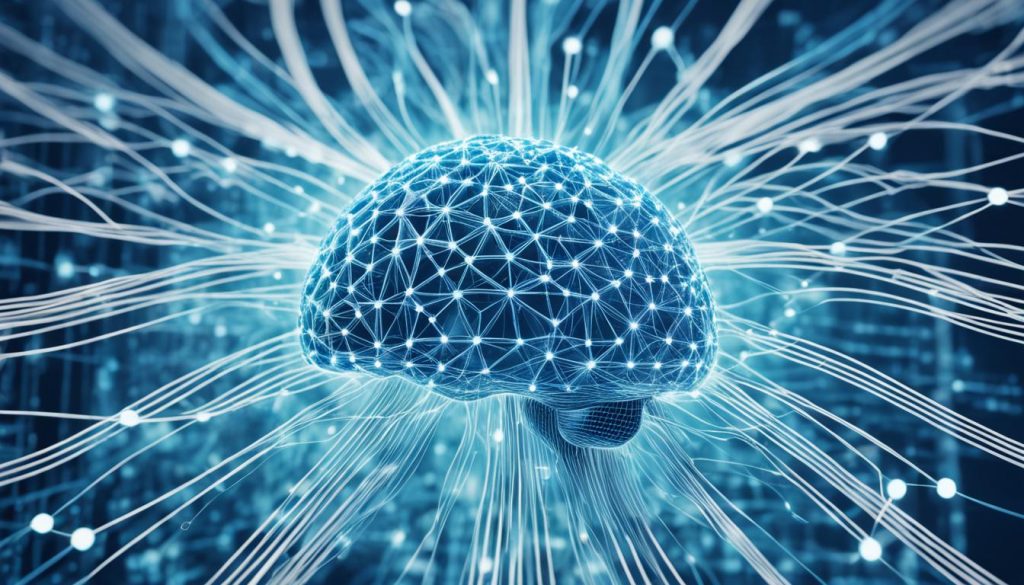
In Summary
The incorporation of working memory through memory-augmented neural networks like DNCs represents a significant advancement in the field of AI. By broadening AI abilities and emulating the cognitive capabilities of human memory, DNCs enable AI systems to learn, reason, and adapt in ways previously unattainable. These advancements open up new frontiers in information retrieval, knowledge representation, and transfer learning, paving the way for smarter, more intelligent AI systems in the future.
Challenges and Limitations of Differentiable Neural Computers
Despite their potential, Differentiable Neural Computers (DNC) face certain challenges and limitations that need to be addressed for optimal performance and scalability. These challenges include algorithm complexity, convergence speed, test robustness, and scaling up difficulty.
Algorithm Complexity
The algorithm complexity of DNC can be relatively high, which can impact computational efficiency. As the complexity of the algorithm increases, the time and resources required for calculations also increase. Algorithm complexity is a critical factor to consider when implementing DNC in real-world applications, especially when dealing with large datasets and computationally intensive tasks.
Convergence Speed
The convergence speed refers to how quickly the DNC model can achieve a desired level of accuracy or performance. While DNC has shown faster convergence speed compared to other models in certain scenarios, it may still face limitations in faster convergence when handling complex problems or large datasets. Improving convergence speed is essential for reducing training time and enhancing the overall performance of the DNC.
Test Robustness
Test robustness is an important consideration when evaluating the stability and reliability of reasoning in Differentiable Neural Computers. Robustness refers to the ability of the model to perform consistently well across a wide range of test scenarios and inputs. Ensuring test robustness is crucial for building reliable and trustworthy AI systems that can handle various real-world situations and produce accurate and reliable results.
Scaling Up Difficulty
As the complexity of tasks and datasets increase, scaling up the DNC model can pose difficulties. Accessing memory efficiently becomes a challenge due to the complex calculations involved. Scaling up difficulty can impact the overall performance and practicality of DNC in real-world applications that require processing large amounts of data or dealing with complex problem domains.
“The success of Differentiable Neural Computers heavily relies on addressing these challenges and limitations. By improving algorithmic efficiency, accelerating convergence speed, ensuring test robustness, and overcoming scalability issues, we can unlock the true potential of DNC and leverage its cognitive abilities to advance the field of artificial intelligence.”
It is essential to address these challenges and limitations to fully harness the capabilities of Differentiable Neural Computers. Overcoming algorithm complexity, improving convergence speed, enhancing test robustness, and finding efficient solutions for scaling up difficulty will pave the way for the widespread adoption and successful application of DNC in various domains.
Next, we will explore the future prospects and advancements in AI systems utilizing Differentiable Neural Computers, as well as the ethical considerations that come along with this transformative technology.
The Future of Differentiable Neural Computers
Differentiable Neural Computers (DNC) are revolutionizing the field of computer science and serving as a metaphor for cognitive science and neuroscience. By leveraging the power of memory and enabling AI systems to generate answers without the need for explicit programming, DNCs have the potential to transform knowledge organization and utilization in a connected manner.
As DNCs continue to evolve, efforts are underway to enhance their human-like abilities. One of the key challenges is enabling DNCs to quickly learn new tasks with limited experience, akin to the way humans assimilate knowledge. Overcoming this challenge is crucial for advancing AI capabilities and achieving a level of cognitive proficiency that parallels human cognition.
The future of DNCs lies in unlocking their full potential as cognitive agents. Through ongoing research and development, AI scientists and experts are striving to make DNCs more adaptable, intuitive, and capable of learning complex tasks in a manner similar to humans. By infusing DNCs with enhanced cognitive capabilities, AI systems can become even more efficient, robust, and effective problem solvers.
Advancing the field of cognitive science is also intrinsically linked with the progress of DNCs. These neural computers provide valuable insights into how humans process information, retain knowledge, and reason. By studying the mechanisms of DNCs, researchers are gaining deeper insights into the intricacies of human cognition, which ultimately contributes to the broader realm of cognitive science.
Despite the substantial progress made so far, there are various AI challenges that need to be addressed in the future of DNCs. These challenges include algorithm complexity, convergence speed, and the ability to scale up DNCs for more complex tasks. By tackling these challenges head-on, researchers can pave the way for the widespread adoption of DNCs and further advancements in AI.
“Differentiable Neural Computers offer a promising path towards bridging the gap between artificial intelligence and human-like cognitive abilities. By enabling AI systems to organize knowledge and reason in a manner reminiscent of human thought processes, DNCs have the potential to reshape the future of AI.”
As the field of AI continues to unfold, the future prospects of Differentiable Neural Computers are exciting and full of possibilities. These technological advancements have the potential to usher in a new era of cognitive computing, where AI systems closely emulate human-like abilities in their interactions with complex data and problem-solving tasks.

Ethical Considerations of Differentiable Neural Computers
As Differentiable Neural Computers become more prominent, it is crucial to examine their ethical implications. The use of data and algorithms in the DNC can introduce bias, potentially resulting in unfair and discriminatory outcomes. Additionally, the requirement for sensitive information raises concerns about data privacy.
Bias is a significant ethical concern associated with Differentiable Neural Computers. The models rely on large datasets, and if these datasets are biased or contain discriminatory patterns, the DNC may unwittingly perpetuate these biases in its decision-making process. Ethical AI practitioners must proactively address this issue to ensure fairness and eliminate discrimination in automated systems.
Transparency is essential in combating bias. By making the algorithms and decision-making processes of the DNC transparent, researchers and developers can identify and rectify any biased behaviors. It allows for external scrutiny and promotes trust and accountability.
Data privacy is another critical ethical consideration when using Differentiable Neural Computers. As these systems require access to sensitive information, it becomes crucial to establish robust data protection and privacy measures. Safeguarding individual privacy rights and preventing unauthorized use or disclosure of personal information must be a top priority.
Ensuring ethical AI entails developing and implementing guidelines that govern the ethical use of Differentiable Neural Computers. These guidelines should cover areas such as bias detection and mitigation, data privacy regulations, and transparency requirements. Organizations must be committed to adhering to these guidelines to maintain public trust and uphold responsible AI practices.
Transparency plays a pivotal role in addressing ethical concerns. By providing clear explanations of how the DNC operates, organizations can build trust with the public and enhance transparency. This includes disclosing the data sources used, algorithmic processes, and any limitations or biases.
The ethical implications of Differentiable Neural Computers extend beyond individual biases and privacy concerns. Organizations deploying these systems must recognize the broader societal impact of their decisions and actions. Considerations such as social justice, equality, and human rights should guide the development and deployment of these AI technologies.
| Ethical Considerations | Actions |
|---|---|
| Bias Detection and Mitigation | Regularly audit and analyze algorithms for bias, implement bias-detection strategies, and develop measures to mitigate bias in decision-making processes. |
| Data Privacy | Adhere to data privacy regulations, implement robust security measures, and obtain informed consent from individuals whose data is collected. |
| Transparency | Ensure transparency by disclosing the sources and processes involved in the DNC, allowing external scrutiny, and providing explanations of outputs. |
| Societal Impact | Consider the broader societal implications of DNC applications and align decision-making with social justice, equality, and human rights. |
By placing a strong emphasis on transparency, data privacy, and the development of robust ethical frameworks, we can harness the potential of Differentiable Neural Computers while minimizing harm and ensuring their responsible implementation.
Conclusion
Differentiable Neural Computers (DNC) offer promising prospects for advancing artificial intelligence (AI) systems towards human-like cognitive abilities. By incorporating working memory and long-term memory, the DNC significantly enhances reasoning ability and problem-solving capabilities. This model has demonstrated superior performance and faster convergence speed compared to other existing deep neural network (DNN) and DNC models.
While there are challenges and limitations, ongoing efforts to address these issues hold the potential for substantial advancements in AI. Ethical considerations, such as bias mitigation and data privacy, must be carefully addressed to ensure the responsible development and use of DNCs.
The future of Differentiable Neural Computers opens up possibilities for transforming AI and paving the way for more advanced problem-solving and cognitive abilities. As research continues, the potential for AI systems to approach human-like cognitive abilities becomes increasingly tangible. The integration of memory mechanisms in AI models has the potential to revolutionize fields such as information retrieval, knowledge representation, and transfer learning.
Overall, Differentiable Neural Computers offer a significant step towards the creation of AI systems with cognitive abilities. By continuously advancing the capabilities and addressing ethical concerns, AI can unlock new realms of problem-solving and cognitive capabilities, ultimately shaping the future of technology and society.
FAQ
What is a Differentiable Neural Computer (DNC)?
The Differentiable Neural Computer (DNC) is a model that aims to bridge the gap between artificial intelligence (AI) and human-like cognition. It incorporates working memory and long-term memory, inspired by the learning and memory mechanism of the human brain. The model allows for the autonomous transformation of acquired experience between working memory and long-term memory, improving reasoning ability.
How does a Differentiable Neural Computer work?
Differentiable Neural Computers utilize a neural network called a controller, which performs operations on memory. The controller can choose to write information to memory, either in a new, unused location or in a location that already contains relevant information. The DNC can also read from multiple locations in memory, searching based on content or following associative temporal links. These operations allow the DNC to store and retrieve information, supporting reasoning ability and problem-solving.
What are the applications of Differentiable Neural Computers?
Differentiable Neural Computers have been applied in various domains. They have demonstrated success in complex intelligent dialogue and reasoning systems. The DNC has also shown promising results in question answering tasks, outperforming other DNN and DNC models. Additionally, the DNC can be trained using reinforcement learning, allowing it to learn to perform tasks such as solving block puzzle games. Furthermore, the DNC can store and manipulate complex data structures, making it useful for representing and reasoning with structured data.
How can Differentiable Neural Computers advance AI systems?
Differentiable Neural Computers have the potential to enhance the abilities of current AI systems by providing them with working memory. By incorporating a unique form of memory, the DNC can perform relatively complex tasks and figure out what information to store in its memory. This advancement moves AI systems closer to human-like abilities, enabling them to learn and reason with information stored in memory. It opens up possibilities for applications such as information retrieval, knowledge representation, and transfer learning.
What are the challenges and limitations of Differentiable Neural Computers?
Differentiable Neural Computers face certain challenges and limitations. The algorithm complexity of the DNC can be high, impacting computational efficiency. The convergence speed of the DNC may also be slower compared to other models. Additionally, test robustness is an important consideration for the DNC, as it affects the stability and reliability of reasoning. Furthermore, scaling up the DNC can pose difficulties, particularly in accessing memory due to the complex calculations involved.
What does the future hold for Differentiable Neural Computers?
Differentiable Neural Computers offer a new tool for computer science and provide a metaphor for cognitive science and neuroscience. By learning how to use memory and produce answers without prior programming, the DNC demonstrates the potential for AI systems to organize and utilize information in a connected manner. However, there is still work to be done to make the DNC more human-like in its ability to quickly learn new tasks with limited experience. Overcoming this challenge will be a major focus in advancing AI capabilities.
What are the ethical considerations of Differentiable Neural Computers?
As Differentiable Neural Computers become more prominent, it is important to consider ethical implications. Bias in data and algorithms used by the DNC can result in biased outcomes, raising concerns about fairness and discrimination. Privacy concerns may also arise, as the DNC requires access to sensitive information. Ensuring ethical guidelines are in place and promoting transparency in the development and use of DNCs will be crucial to address these ethical considerations.


